Open Full Navigation
Contact Us 24/7 - Main (262) 432-8100
We're sorry but the candle you have selected is currenty in the process of being purchased or has just recently been purchased.
Please feel free to select another candle or check back in 15 minutes to see if the candle you have selected has been released for purchase.
Thank you.
Okay
We're sorry but there are no candles available for lighting.
Thank you.
Ok
You have already begun a candle purchase session. If you would like to continue with your current candle choice please click "Continue" otherwise please click "Select Another".
Thank you.
Select another
Continue
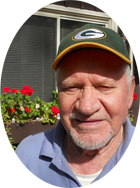
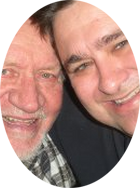
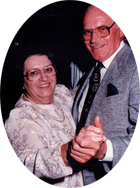
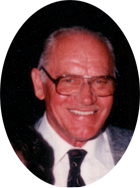
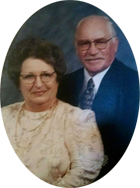
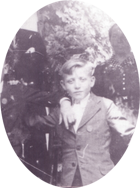
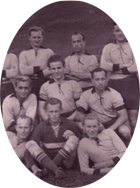
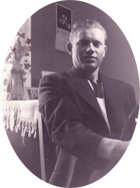
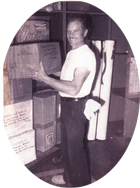
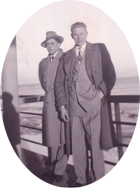
In Memory of
George Joseph
Steringer
Steringer
1928 - 2016
Click above to light a memorial candle.
This Book of Memories memorial website allows family and friends a place to re-visit, share and enhance this tribute for future generations.
Menu
- Obituary/Notice
- Condolences and Tributes
- Light a Memorial Candle
- Send Flowers
- Service Details
- Memories
- Share
- Help
- Book of Memories
Schramka Funeral Homes
13220 W. Capitol Drive
Brookfield, Wisconsin
UNITED STATES
53005
In the event that there is an error
in the information presented,
please contact the funeral
home by clicking here.
Grandpa's Story
Three weeks ago I took Grandpa outside to get some sun, I held his hand, and we talked. He enjoyed the sunshine and it seemed to pep him up a bit. I asked him what his favorite thing to do was. “Laying brick” he said. “Laying brick”. Hmm.
I knew him well and his response made a lot of sense. You see, he liked projects and he liked building things. Whether it was applying brick to the home he built in Fondulac, or edging a driveway, and he would smile. He did it well.
Now Grandpa liked to tell stories. Like bricks, sometimes I would get small pieces — sometimes large chunks. Sometimes I would get the same story over and over again. But today I’m going to tell you about Grandpa’s story.
I was fortunate enough to spend a few summers with my Grandparents when they lived in California so I knew the man as a child and I got to know him as an adult. He was a friend, and as I told him a decade ago, like a father to me. He had a simplicity and joy about him that was charming. We could be driving down the highway and he would point off to the side of the road at something say, “look, look Jimmy, a cow”. I’d nod my head and say, “yep, that’s a cow”. The next time he pointed something out it may have been a bird, or a billboard. Yes, it was obvious, but it was an endearing Grandpa-ism that I grew to love.
Fishing and hunting were a passion for him. He hunted blacktail deer in the High Sierra Mountains, wild boar off the coast of California and whitetail deer here in Wisconsin. Together we caught salmon from the Columbia River in Oregon, Bonita Tuna off a barge in California, and trout in the High Sierras.
He was a man who carried himself with great pride. He was proud of his strength, even in this last year. He couldn’t walk or even stand up, but when he would shake my hand he had this bone crushing grip. If I didn’t prepare for it, you could hear the little knuckle bones cracking. It was all he had left to show that he still had his strength. So I’d get my hand just right and I could meet his strong grip with my own — not that mine was anything to be impressed with but it was the same as his — of course he was an 87 year old man at the time.
He loved doing projects. Back about 6 years ago, when he was still living in his Cedarburg home, I went over for a visit. He said his legs were hurting and he didn’t know why. I asked him what he’d been doing and he said he was doing nothing that could have caused it. An hour or so passed and he mentioned that he had painted all of his soffit and fascia. How long did it take, I asked. “Two days” he said. I said to him, Grandpa, you’ve been climbing ladders for two days and you’re over 80 years old — you think maybe that has something to do with why your legs hurt? “Maybe” he said. Maybe.
Grandpa was a union man for nearly 30 years — a teamster, and he was proud of that. When he was a forklift operator at Consolidated Freightways he would drive over an hour to get to work. His arm wrestling prowess was near legendary there. He could beat anyone, at least until his work buddies brought in a professional arm wrestler.
After working all day, he would drive an hour home and when he got home we did projects in the summers I spent with them. After working all day, he would say “let’s build a retaining wall”. And we did. And after that wall was done, we hand dug an in ground pool, or worked on the garden — all after he already put in a hard days work. Then the next day he would do the same thing. I learned a lot during those summers.
He grew up on a farm in Yugoslavia. His family would make plum brandy and he played soccer. It was a simple start to his life, but that simplicity was cut short when he turned 16. Yugoslavia was in a vice between the Serbian partisans to the south and the Germans to the north. The Germans came in to conscript all young men 16 years old or older and with germanic blood. If the German Army didn’t get you, the Serbs were ethnically cleansing Yugoslavia of Germans. It was a bad place to be and he was swept up in it. After the Germans put him through boot camp, he and his army buddies were put on a train, bound for the eastern front. Now if you’ve done any studying of history, you know that most German troops that made it there were slaughtered by the Russians.
As the train headed east, it was strafed by a plane and a young George jumped off the moving train just in time. But as he landed, he realized he was covered in blood. He felt around to see where his wound was, and it was then that he realized that the blood was not his, but the blood of his army buddies.
That was 1945 and World War 2 was almost over. As a young man, stuck in the countryside in a German army uniform covered in blood, he must have been quite the target. But he was smart and he kept a low profile — traveling at night and sleeping in drainage culverts during the day. And then the war ended.
He would hang out near the American camps where our troops grew to love this teen. He learned english there and would shine boots since for every pair of boots he would shine the soldiers would give him a bowl of soup.
He ate a lot of soup.
It was a tough time in Germany back then. There were food shortages and not much in the way of opportunity. He didn’t know where his family was and he was on his own at just 16. Without prospects, he decided to emigrate. Back then, you could apply to go to up to three places. He chose South Africa, the French Foreign Legion and America.
Grede foundry in Milwaukee, right by Allen-Bradley back then, needed workers and since America was the first place to say they’d take him, he worked in the foundry. America became his new home and he quickly became an American citizen.
Grede Foundry may have been his first job in America, but it was his second job that he loved the most. As a mason he helped build Bayshore Mall and on that job he learned to operate heavy construction equipment. After he moved to California and got the job at CF, he still did side jobs on the weekend. He had business cards printed up that said, “Let George Do It”. And it was enough to keep the concrete and brick work coming in. It was hard work and all of that lifting was what he said caused him to have veins in his hands like garden hoses. He was proud of those garden hoses.
He had two great loves of his life. They happened to be sisters.
He frequented the dance halls where he met my Grandmother, Delores. Any lady who ever had the pleasure of dancing with Grandpa knew he could cut a rug. A master at the polka, he could do any dance. He could make a lady feel like she was the center of attention. At that moment, only she mattered. He was a ladies man. He could have taught classes on charm and in a city with german and polish ethnicities, he was right at home.
He called my grandmother his Polish Princess and shortly afterwards, they wed. Grandma came into the marriage with two girls, my Mom Kathy and my Aunt Susie, and his son Mike was born within a year. And now he was a family man, with responsibilities.
But America needed him and called on him to serve. It was the Korean War this time. He was stationed in Japan where the Army made use of his experience as a heavy equipment operator. While he was there, one of the other operators didn’t put the brake on one of the trucks which started to roll downhill right toward a group of his fellow American troops. Whether it was quick thinking or reflex, he risked his own life by jumping into that moving truck and hit the brakes before anyone was hurt. He received a special commendation for that.
When he returned, he built a life for him and his family. Grandchildren came along and he passed along his work ethic.
When I was in college I went to visit them for a few days. Grandpa had gotten a case of beer. He was proud that he found “Milwaukee’s Best”. He was so pleased with his find that I gave it a thumbs up despite the fact that even most of the college students I knew wouldn’t touch the stuff.
I never remember a time when Grandma’s health was good and we had talked about going to Germany to visit his brother, Uncle Hans and Aunt Mede, but we never did because Grandma’s heart wasn’t strong. When she passed away I said let’s go — let’s do it, if we don’t do it now we never will. I was surprised when he said yes and we paid for the tickets and booked the trip.
I’m glad we booked it right away, because shortly after the tickets were purchased he was smitten with the second love of his life, my Aunt Gloria. I don’t think he would have gone had he not already purchased his ticket.
We traveled throughout Bavaria, the southern state of Germany. We clinked beer steins in the beer tents during Oktoberfest in Munich. We shared a love of beer steins and we both had a collection that we added to during that trip. We took a steep hike up to Castle Neuschwanstein, the castle of King Ludwig, the mad King. He powered right up that hill right with me despite the fact that he was twice my age.
As the years went by, he enjoyed the company of Gloria and her children. It was an opportunity for him to have a second family and he relished it.
When he broke his hip and was laid up in the hospital, it was Veterans Day. The nurses put a flag on his door. It was clear that he was proud of having served. It was then that he told me his war stories. Sometimes he would pause and his eyes would water. I felt like it was something special — something that he didn’t ever share before.
He built a life, brick by brick — simple and structured. When you build a project you have to plan everything — materials, time, costs. And somehow it’s telling what kind of a man he is that even on paperwork to plan his own funeral, he listed his occupation as “brick layer”.
Posted by Jim McGuigan
Monday July 11, 2016 at 12:19 am
Recently Shared Condolences
Recently Lit Memorial Candles
-
We are honored to prov ...(read more)
-
We still miss you, Gra ...(read more)
-
You will be missed. I ...(read more)
-
My deepest condolences ...(read more)
-
For the last 26 years, ...(read more)
Recently Shared Stories
-
Three weeks ago I t... (read more)
Cherishing Life Sharing Forever
This Book of Memories brings those affected by loss together by encouraging communication and self-expression. By giving friends and family a special place to tell their stories and express their feelings of loss, it helps them care for one another during a very difficult time. Click on any of the links to the right to access features or information within this memorial website.
Memorial Tribute Website Proudly Provided by:
Schramka Funeral Homes
13220 W. Capitol Drive
Brookfield, Wisconsin, United States
Phone: 262-432-8100
Map | Directions | Contact Us



